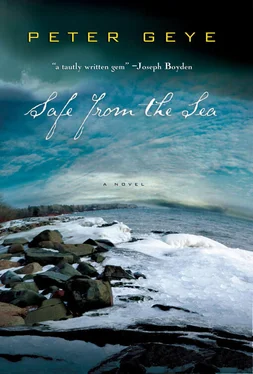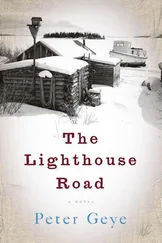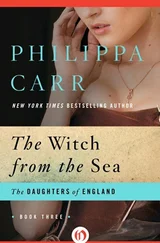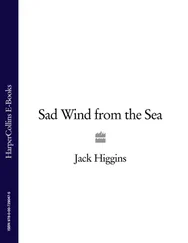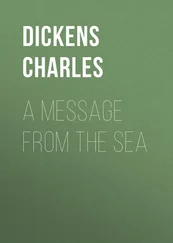“You know, I was on my way home when she died,” Olaf said, seemingly oblivious.
“I remember when she died,” Noah said, wondering now if his father really was looking for a fight.
“That’s the only time I’ve ever been on a plane in my life. I had to leave my boat in Toledo, take a bus to Detroit and get the plane. It cost a hundred bucks.”
“A regular hero.”
Olaf turned away, set his chin back on his chest. The sky sparkled with stars, lightening and darkening simultaneously as it got later and the moon rose.
“Your mother wanted you to play the piano,” Olaf said.
Noah sneered incredulously, nearly stood up to leave.
“She did,” Olaf said.
“What difference did it make who played the piano?”
“None,” Olaf said. “I’m just trying to remember.”
“Why are you doing this? You can’t even face it now, can you?”
“Chrissakes, Noah.”
Noah had to clench his teeth to keep from saying more.
When, one night early in their relationship, Natalie had asked Noah how his mother had died — they were eating oysters and drinking Pimm’s at a place out on Marblehead Beach — Noah had said loosely but with conviction, “Of a broken heart.”
His mother had, in fact, died of heart failure, of a heart attack brought on, Noah always imagined, by an excess of longing.
“They called you on Saturday. You got to port on Sunday morning. You didn’t get back to Duluth until Thursday. For four days you knew how sick she was, and still you didn’t get home? And somehow you were a hero for getting on a plane?”
“It’s not that simple,” Olaf said.
“She was dying .”
“We didn’t know that then.”
“Are you kidding me?” Noah stood up, walked to the edge of the water, picked up a rock, and threw it out into the lake.
“I didn’t expect her to die, Noah.”
“What did you expect, huh?” He threw another rock into the lake and turned to face his father. “We were fucking kids.”
“Your mother and I, we were hardly speaking to each other by then.”
“You had two kids, too. Did you forget about us?”
“I didn’t forget about anything.”
“You know what?” Noah said, stepping back toward his father. “That only makes it worse. We needed you and you weren’t there. You were never there.”
“The story is a lot more complicated than you remember,” Olaf said.
Noah dropped back into the chair and ran his hands through his hair. “What part of the story am I forgetting, Dad? All we wanted was for you to come home and tell us that the world hadn’t ended, that’s all you would have had to do.”
“The world ended long before that night,” Olaf said.
Noah heard a note of resignation in his voice, a pitiful, sad, thoughtful timbre that he’d never heard before but that he didn’t quite believe. “Don’t you get it? Mom had just died. Whatever tragedy you suffered shouldn’t have mattered. It still doesn’t matter. You had a responsibility, and you blew it.”
“Do you think I’m sitting here ignorant?”
“I think you’ve always believed that what happened to you was more tragic and more meaningful than anything that ever happened to anyone else. And that’s wrong. You just couldn’t shake it, that’s all, you lugged it around like a yoke and nothing else mattered. That’s what I think.”
“You’re dead wrong about all of that. Dead goddamn wrong.”
“Then tell me why you weren’t there. Tell me why you disappeared. Tell me why Mom never had a funeral.”
Olaf looked squarely at Noah, a face full of regret if Noah judged right. “I still have her ashes,” he said.
“What?”
“They’re in the shed. They’re stowed away.”
Noah was dumbstruck.
“I can’t tell you why I wasn’t there, Noah. I can’t tell you why I disappeared or why your mother never had a funeral. I can’t tell you because I don’t know.”
“They’re in the shed?”
“I never knew what to do with them. What are you supposed to do with your wife’s ashes?”
Noah had no idea.
They sat quietly for a long time. The night was stunning, cooling, the sky bursting with stars. Noah watched his father doze off, his chin on his chest. Twice Vikar stood and went to the shore to drink, and twice he came back to Olaf’s feet.
Eventually he thought of Natalie. He imagined her at home, curled up on the couch in the den. She was coming here. A fact Noah found hard to imagine. Sometimes, at home, before they fell asleep, they’d lie in bed conjuring up their fantasy child — a baby boy — whose ascendance into the nighttime world of forgiveness and fantasy was like religion for them. The boy would be a prodigy, of course, but a prodigy of ordinariness. This meant a Little League career that included errors and strikeouts galore but also a zest for the game straight from the little guy’s good nature. It meant a seventh grade girlfriend and questions about her. It meant high school and the prom and ski trips up to Sugarloaf with the boy and a couple of his pals. It meant college at Dartmouth, Nat’s insistence, and law school and a job in downtown Boston where the two of them — Noah and his son — could get together for lunch on Fridays. There were no dislocations in this fantasy, no shipwrecks. And certainly no ashes stowed in the shed.
“Winter’s in that wind,” Olaf said, turning the collar of his shirt up.
His voice startled Noah from his reverie. He hadn’t noticed the outright chill in the air but felt it the moment his father mentioned it.
“You fell asleep.”
“It’s awfully damn late for me.”
Noah turned his attention back to the lake and the rippling water. Steadier now, the waves lapped gently against the dock posts and onto the beach. “Two weeks ago that sky would’ve been a circus with northern lights,” Olaf said, pointing upward. “It’s a goddamn sight.
“My first year on the Loki I used to sit watch from midnight until four. Ninety percent of the time this meant just staying awake. Sometimes I’d be up in the pilothouse, sometimes down on deck, depending on the weather and where we were. It was a boring job, boring as hell to tell the truth, but my captain that first year was a German guy named Wolfgang, a hell of a guy, smart as anyone I ever knew. He introduced me to the stars, so to speak.” Olaf nodded up at the sky. “He taught me some things about navigating. Just basic stuff, but I was hooked. He said that a true seaman could sail around the world without anything more than a watch and a sextant and the sky to guide him. I didn’t even know what a sextant was, just figured you knew where to go if you were in charge of one of those boats. I never reckoned there was any science to it. Wolf taught me how to take sun sights, how to chart our course, how to estimate our position using dead reckoning when the sky was cloudy and the shore out of sight.” He paused, cleared his throat. “Now it’s just a bunch of satellites telling you where you are and where to go. Back then it was still something beautiful to steer a ship.”
Olaf stopped talking, looked up at the sky, and pointed to different clusters of stars, marking the air with fingertips. Noah, in all his life, had never heard his father say so much at one time. He’d never heard him say half as much.
“What are you pointing at?”
Olaf looked down. “Nothing,” he said. “There was a lot of down-time on the ship, especially as a kid when I didn’t have any responsibilities outside my watch. On clear nights I used to stand on the stern deck looking out at the wake. There’re a lot of things to see in the night sky, especially on Superior. And there were a lot of reasons to be lonely, especially if you were the new kid onboard. But when you’re aching to get away, which I was, even the worst loneliness doesn’t sound too bad.
Читать дальше
